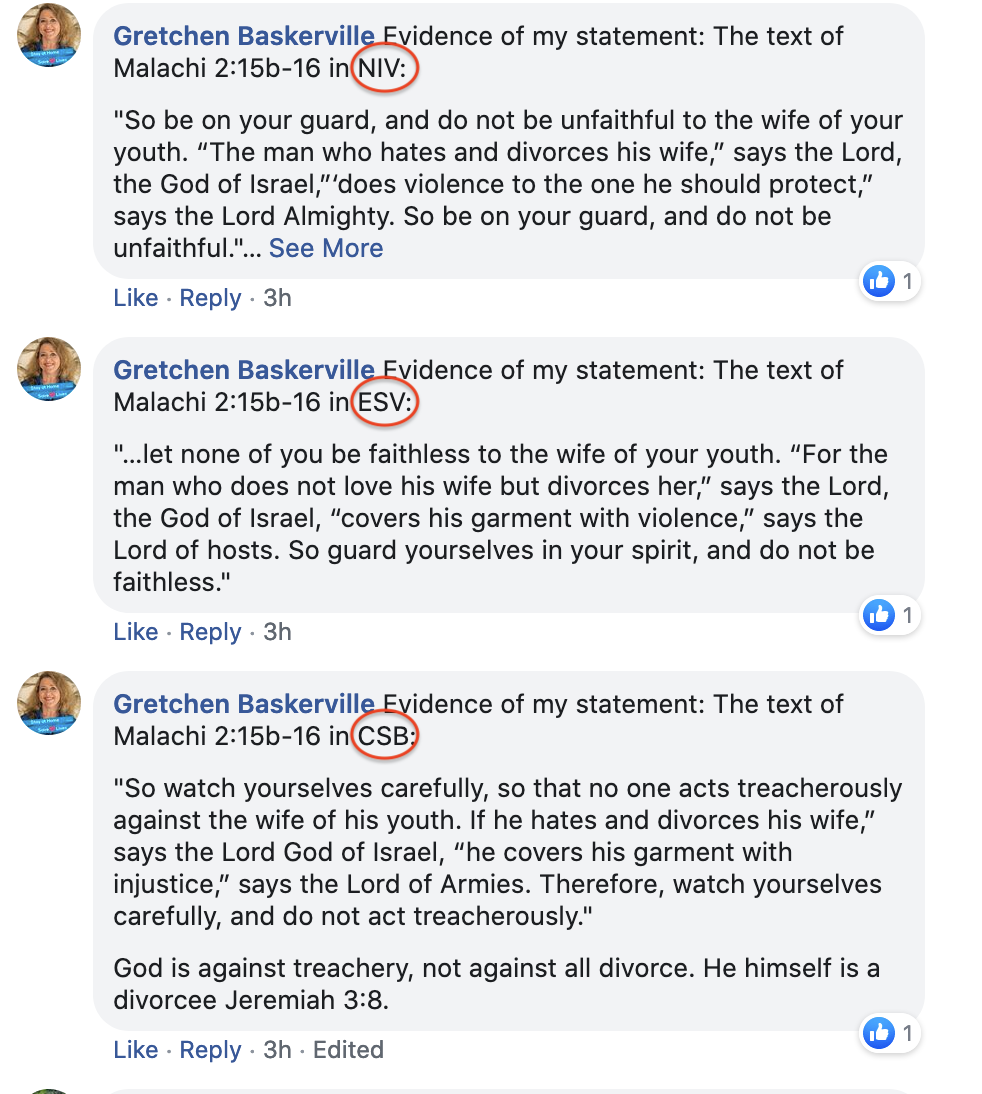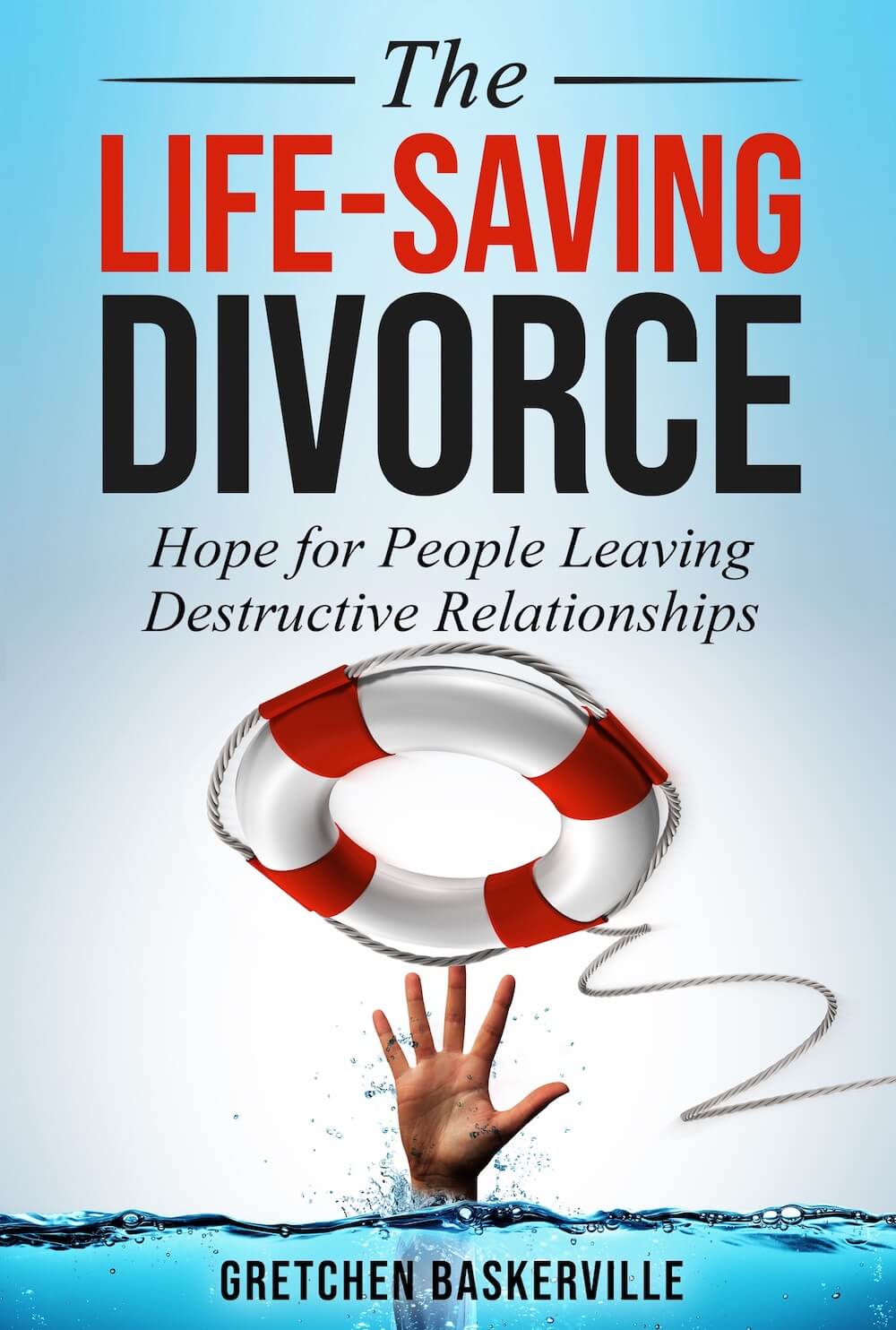HOW TO HELP A FAMILY MEMBER WHO IS BEING EMOTIONALLY, SEXUALLY, SPIRITUALLY, OR FINANCIALLY ABUSED—BUT WON’T LEAVE FOR RELIGIOUS REASONS
A woman reached out to me for help to persuade her mother to get to safety from her volatile husband. He was angry, irritable, and filled with rage and unleashed his fury on her mother and younger siblings.
The mother was terrified of him, and used her adult daughter as a therapist. She would watch out the window, and would hang up the instant his car turned the corner. She walks on eggshells. Her husband curses her, calls her names, and berates her in public.
The daughter explained that her mother was against leaving or getting divorced — and so was her mother’s pastor. Both felt that God would be disappointed or angry with her if she divorced.
The daughter was understandably at her wits end, consumed with fear and worry
Here is my reply:
Dear Desperate Adult Daughter,
Your mother is truly fortunate to have a kind and loving daughter like you.
I’m deeply sorry your mother is trapped with someone she describes as an angry, irritable, and rage-filled man. Her story is heartbreaking, and I can only imagine how difficult this is for you as well.
When a mother genuinely believes she cannot divorce—especially when her pastor reinforces this belief—she finds herself in an agonizing situation.
She doesn’t want to lose her faith community, which provides her with friendship, acceptance, and dignity.
Changing deeply held spiritual beliefs is incredibly challenging, particularly when someone fears disappointing or angering God by considering divorce.
It can take a long time to shift values that have been ingrained for a lifetime.
For now, I suggest stepping back and focusing on behind-the-scenes planning:
- Housing Options: Determine where she could live if she decides to divorce. Come up with a couple of options. Perhaps your home, perhaps a shelter. If you know her income, you might be able to research some apartments.
- Safety Plan: Develop a plan for her and the younger children to escape if violence erupts suddenly and they need to flee for a few days. There are many Christian organizations that have developed “safety plans.” Here’s a 9-page list from Focus Ministries. https://www.focusministries1.org/SafetyPlan.pdf
- Essential Documents: Gather the necessary documents to streamline a potential divorce. This will ease her mind and take off a lot of pressure if she does decide to leave. It will also help if she develops dementia or some other cognitive decline and can no longer make those decisions. Check this list: lifesavingdivorce.com/escape.
- State Laws: Research divorce laws in her state. https://lifesavingdivorce.com/divorcelaws/. Could a “legal separation” be an option, allowing her to tell her church she’s not divorcing but temporarily seeking safety? Six states do not have the option of legal separations. Educate yourself with this list.
- Supportive Communication: When she shares details of abuse, respond with compassion: “Mom, I love you, and you don’t deserve this. This is not normal husband behavior. If you or the kids ever need to get to safety, let me know.” (Adapt this to fit your relationship.)
- Avoid Criticism: Refrain from speaking negatively about her husband or church. Labeling him as an abuser may increase her loyalty to him and drive her back to him. This journey is between her and God.
- Private Support Group: You, the daughter, might consider joining the Life-Saving Divorce Private Group on Facebook to see how other devout women have navigated similar situations. https://facebook.com/groups/lifesavingdivorce. Do not suggest she join—she’s not ready.
- Resources for Questions: Prepare resources if she begins to question her beliefs:
—Bible verses on divorce for abuse, adultery, abandonment, and addictions: https://lifesavingdivorce.com/abuse-in-bible/.
—Definition of a “life-saving divorce”: https://lifesavingdivorce.com/category/biblical-grounds-for-divorce/. - Local Shelter: Contact a domestic violence shelter anonymously for advice on helping your mother and the legal resources they may offer. domesticshelters.org.
- National Hotline: Call the National Domestic Violence Hotline(1−800−799−7233) for state-specific guidance. Ask for tips on how to handle the situation and where to find a safe place for her to live short- or long-term.
- Hospital Safety: If she’s hospitalized, even for elective or outpatient surgery, inform the discharge planner of your safety concerns and let them handle it professionally. I’ve seen a situation where the wife could not face the reality of the abuse until the hospital staff said she could not go back to that house, and they helped her with options.
- PRAY that God will change her mind. In my private Facebook group for divorced Christians, I have thousands of members who were taught that God hates divorce, and they were trapped. Many of my 6,500 members tell me that the prayers of their children finally helped them get clarity and leave. Here is a list of the 10 most common ways God opens their eyes. https://lifesavingdivorce.com/10turning/
- BONUS: The Bible verse that is interpreted as “God hates divorce” is not correctly interpreted. The original Hebrew does not say that. Today’s new Bible versions no longer translate it as “God hates divorce.” They interpret it as an anti-treachery verse. https://lifesavingdivorce.com/malachi

3 Versions of Malachi 3:16: NIV (2011 update), ESV, and CSB
This is a solid starting point. Keep praying for her. I was once a wife who swore I’d never divorce, but I did—and it saved me and my kids. My adult children thank me today. Wishing you strength and hope.
Remember that you can be a committed Christian who is against frivolous divorces but understands the need for life-saving divorces as God’s gracious rescue plan for his beloved children when there is a pattern of abuse, sexual immorality, family-crushing addictions and abandonment/neglect.
Note that professionals such as physicians, counselors, and pastors may have different legal obligations. If your loved one is over 65 years old, this might fall under the “elder abuse” category, and you can call Adult Protective Services in your state or county. Let them evaluate the situation.



 :
:
 Buy PDF
Buy PDF